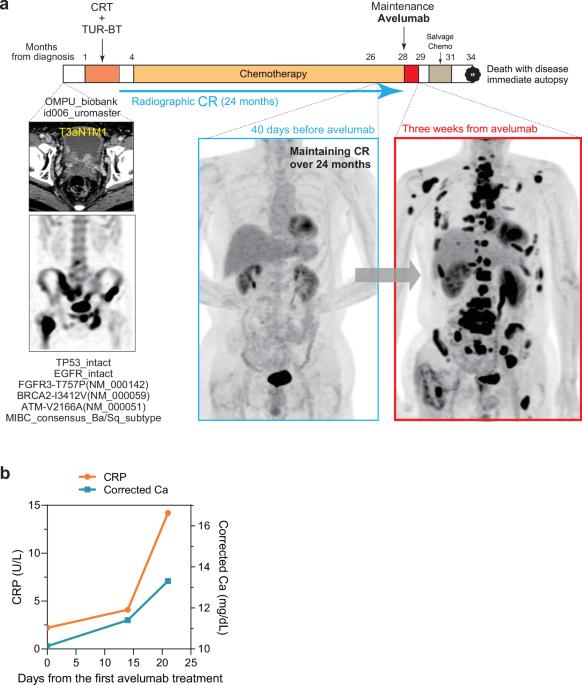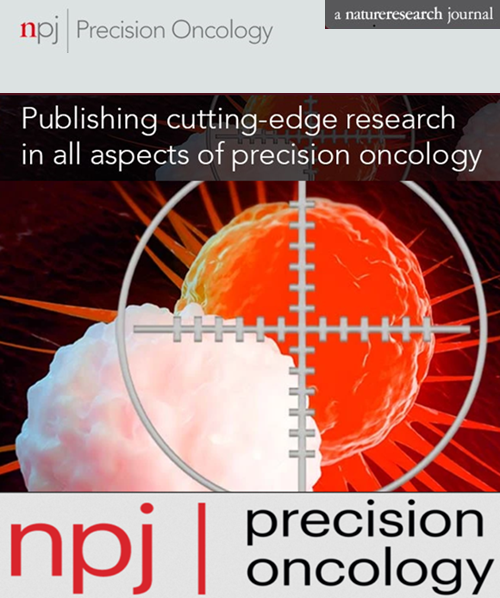Mechanistic insights into lethal hyper progressive disease induced by PD-L1 inhibitor in metastatic urothelial carcinoma
IF 6.8
1区 医学
Q1 ONCOLOGY
引用次数: 0
Abstract
Hyper progressive disease (HPD) is a paradoxical phenomenon characterized by accelerated tumor growth following treatment with immune checkpoint inhibitors. However, the pathogenic causality and its predictor remain unknown. We herein report a fatal case of HPD in a 50-year-old man with metastatic bladder cancer. He had achieved a complete response (CR) through chemoradiation therapy followed by twelve cycles of chemotherapy, maintaining CR for 24 months. Three weeks after initiating maintenance use of a PD-L1 inhibitor, avelumab, a massive amount of metastases developed, leading to the patient’s demise. Omics analysis, utilizing metastatic tissues obtained from an immediate autopsy, implied the contribution of M2 macrophages, TGF-β signaling, and interleukin-8 to HPD pathogenesis.

PD-L1抑制剂诱发转移性尿路上皮癌致命性超进展疾病的机理研究
超进展性疾病(HPD)是一种自相矛盾的现象,其特点是使用免疫检查点抑制剂治疗后肿瘤生长加速。然而,其致病原因及其预测因素仍然未知。我们在此报告一例致命的 HPD 病例,患者是一名 50 岁的转移性膀胱癌患者。他通过化放疗获得了完全反应(CR),随后接受了 12 个周期的化疗,CR 维持了 24 个月。在开始维持使用 PD-L1 抑制剂阿维列单抗三周后,出现了大量转移,导致患者死亡。利用即时尸检获得的转移组织进行的垚物分析表明,M2巨噬细胞、TGF-β信号传导和白细胞介素-8对HPD的发病机制起着重要作用。
本文章由计算机程序翻译,如有差异,请以英文原文为准。
求助全文
约1分钟内获得全文
求助全文
来源期刊

NPJ Precision Oncology
ONCOLOGY-
CiteScore
9.90
自引率
1.30%
发文量
87
审稿时长
18 weeks
期刊介绍:
Online-only and open access, npj Precision Oncology is an international, peer-reviewed journal dedicated to showcasing cutting-edge scientific research in all facets of precision oncology, spanning from fundamental science to translational applications and clinical medicine.
 求助内容:
求助内容: 应助结果提醒方式:
应助结果提醒方式:


